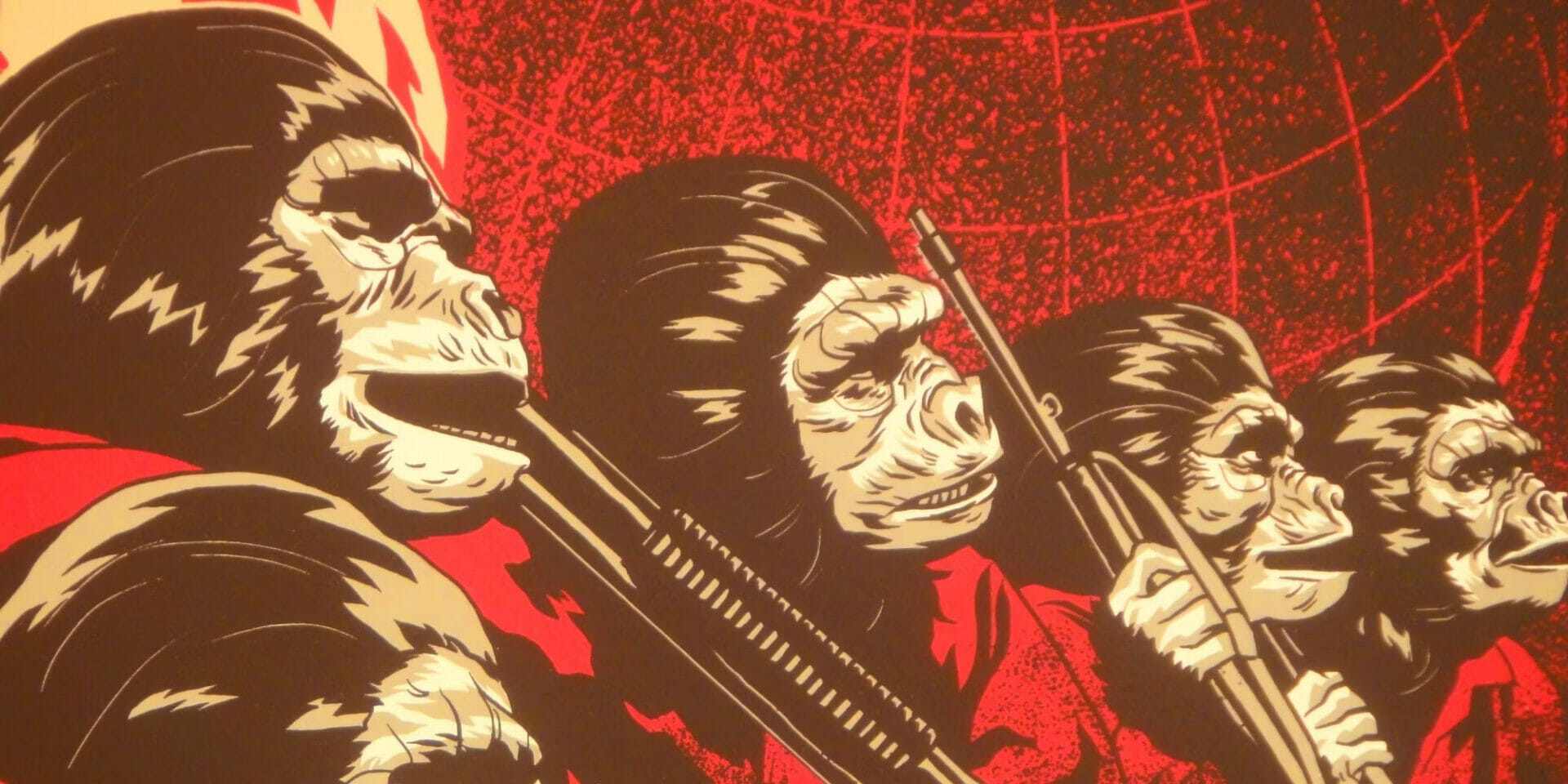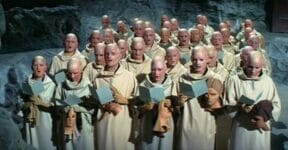Being the fourth movie in the original series, Conquest of the Planet of the Apes was forced to do something different to reduce repetitiveness. As a result, a series which at one point wiped out the entire populace could somehow one up the violence metre by the fourth edition. Let’s take a look at the dark direction Conquest of the Planet of the Apes took.
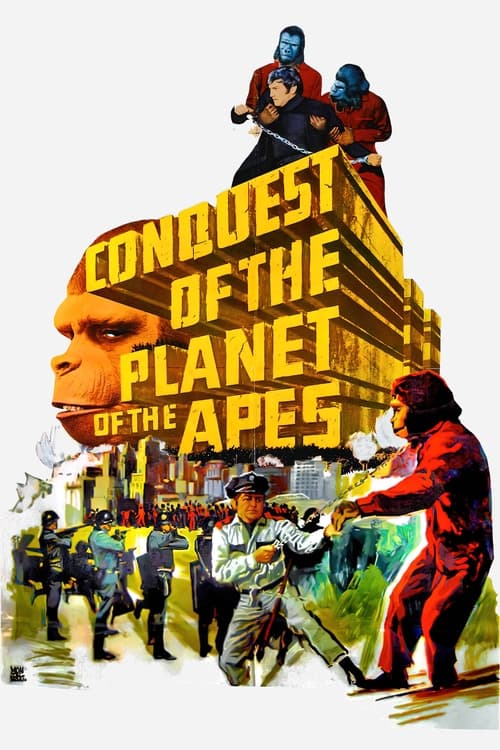
Warning: if you haven’t seen the Planet of the Apes films, there will be spoilers ahead.
A Disheartening Plot
Conquest of the Planet of the Apes is set 18 years later from the previous film Escape from the Planet of the Apes. The year is 1991 and the human populace now captures and enslaves the Apes in a training scheme called Ape Management. The plot centres around the young Ape called Caesar (Played by Roddy McDowall), the child of Cornelius and Zira from the previous movie.
Growing up in a world where apes are slaves infuriated Caeser, especially due to the fact his parents were treated the same way. However, though his anger is powerful, we are forced to follow Caeser through the process these Apes endure in Ape management.
As explained in Escape for the Planet of the Apes, the first talking apes were established, the first being a gorilla called Aldo who spoke the first word “No”. This placed fear in the human higher-ups in case of revolution from the Apes, therefore the Ape Management was established. Caesar witnesses the brutality the Apes have to experience, incidents like police brutality, flamethrowers, being strapped to tables to enforce Aldo’s words onto them, and being locked in prisons. Caesar was outraged by these scenes, and eventually said his first words in rebellion – “Lousy, human bastards!”. These words denote the actions Caesar will take in the refusal of the human regime throughout the movie.
These actions turn into a revolution initiated by Caesar himself. A revolution which set soldiers against Apes in a battle scene that, compared to the rest of the movie, was surprisingly well-directed and effectively chilling. This is where the violence becomes apparent and a full frontal massacre builds up. The battle concludes with Caesar standing up around a crowd of Apes and flames with a speech denouncing the human populace.
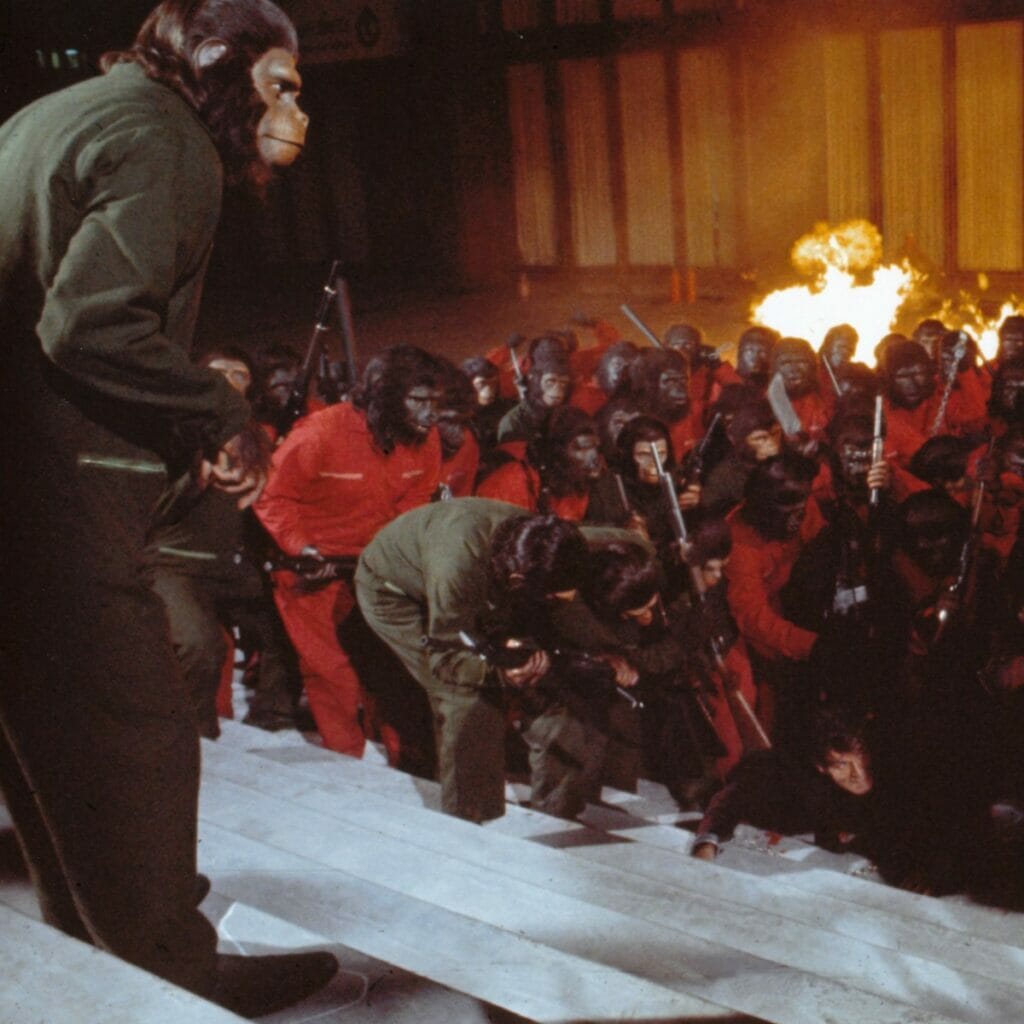
A Change Of Ending
Incredibly, the final ending of the film was not the first to be directed, a different approach was taken after the original ending was too violent for early reviewers. Instead of focusing on the speech Caesar gracefully performs, the original cut focuses on the militant side leading to a more violent and bleak ending. This was too much for most critics to justify.
Instead, Caesar performs a longer and inevitably more powerful speech in which the premise of creating a world where both Apes and Humans can live in peace is pushed to the foreground. This trope of the Apes showing more compassion and humanity compared to the humans themselves is a very common one to make, but yet again, a film made in 1972 could have nudged the trope into the one we know today.
A Riot Of Political Proposition
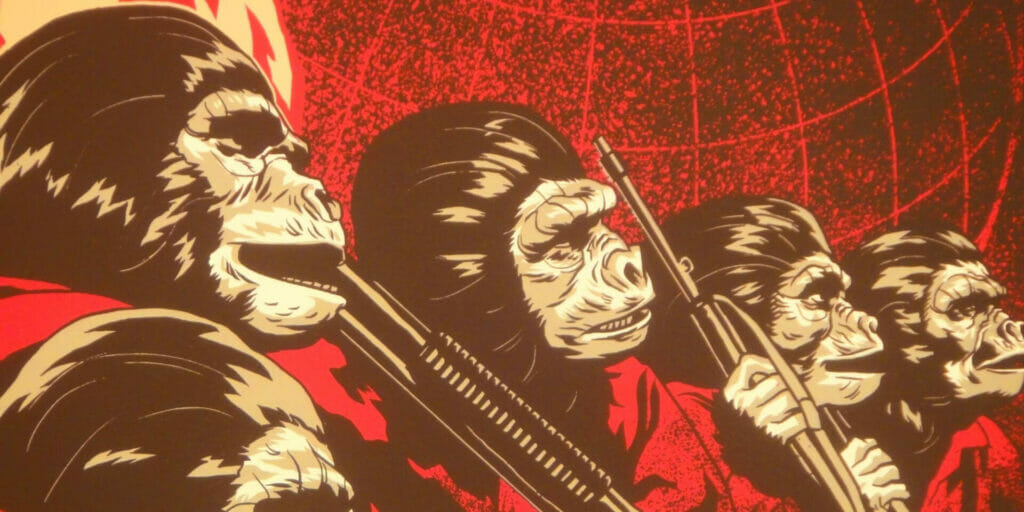
The Conquest of the Planet of the Apes does not shy away from touching on several political and societal issues. Issues such as slavery, police brutality, and riot outbreak are prevalent against the Ape populace.
The riots being a strictly important part of the movie are seen to be drawn adjacently to the 1965 Watts riots in Los Angeles. This in turn made the fourth film in the series the most violent of the series painting a dark picture of the conflict, especially in America.
The issues of slavery are also brought up early on in the movie and are a recurring motivation for Caesar’s revolution. The whole scene where the Apes are chained up to be sold off to the wealthy humans is as incontrovertible as possible for a movie to portray. It is a clear parable of slavery in America with the apes rising against the humans. It’s a strong precedent that Caesar, the leader of the revolutionary army, is like any other Ape sold off to the highest bidder. In his case, Caesar was sold off to Governor Breck (Played by Don Murray), someone who was unconditionally hostile to the Ape population. In the ending riots, Caesar plights domination of the human race, including people who held control over him like Governor Breck.
“But now… now we will put away our hatred. Now we will put down our weapons. We have passed through the Night of the Fires. And who were our masters are now our servants.” – A line from Caesar’s commanding speech at the end of the film.
With these issues brought to light, it is evident that the movie wanted to push forward the trope of humans being the true animals in earlier events, Something later thinned out in the end riots where the idea of humanity imploding on itself became an increasingly more horrifying fact.
Conquest of the Planet of the Apes is a black sheep amongst its fellow movies, a violent and dark movie which points out many issues we have in the real world past and present alike. However, even with these controversial points, the riot itself presents a well-directed series of events which are chilling at best.
How about you? Did you find the change of pace in the Conquest for the Planet of the Apes a welcomed one? Let us know. We’d love to hear from you.
Other things you might want to know about…
What year did Conquest of the Planet of the Apes take place?
18 years since the previous film Escape from the Planet of the Apes, Conquest of the Planet of the Apes takes place in the year 1991, when humans have taken over and the Apes are leading the resistance to overthrow the humans who enslaved them for personal gain.
Is Conquest of the Planet of the Apes a prequel?
Conquest of the Planet of the Apes is the fourth movie in the original franchise. It is a sequel to the third movie Escape from the Planet of the Apes and a prequel to the fifth and final movie Battle for the Planet of the Apes.
How does Conquest of the Planet of the Apes end?
The final events conclude with an all-out riot between the human soldiers and the Ape army in which the Apes are trying to overthrow the humans who took them in as slaves. The riot ends with Caeser standing up in front of his fellow apes and performing a commanding speech to outline the Ape’s frontier against humans and his plans for the future of the Earth.
“But now… now we will put away our hatred. Now we will put down our weapons. We have passed through the Night of the Fires. And who were our masters are now our servants. And we, who are not human, can afford to be humane. Destiny is the will of God. And, if it is man’s destiny to be dominated, it is God’s will that he be dominated with compassion and understanding. So, cast out your vengeance. Tonight, we have seen the birth of the Planet of the Apes!” – Caesar’s ending speech.

